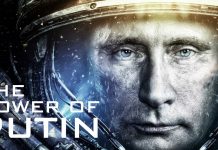Amidst the shifting sands of the Middle East, where uncertainty and complexity seem to have taken firm root, a quiet metamorphosis is underway. An intriguing transformation spearheaded by an individual of vision and strategy is shaping the contours of the region’s future. The spotlight falls on “The Rageh Omaar Report – Turkey’s New Visionary,” a narrative that unravels the trajectory of Turkey as it forges its path to potential superpower status.
Ahmet Davutoglu, a name that resonates with both academia and statecraft, emerges as the central figure guiding Turkey’s journey towards a regional powerhouse. His evolution from a scholar at Marmara University to the helm of the Department of International Relations at Beykent University, followed by a stint as chief adviser to the Turkish Prime Minister, Recep Tayyip Erdogan, and subsequent appointment as the Foreign Minister in May 2009, paints the portrait of a mind at the intersection of theory and action.
Davutoglu’s conviction in Turkey’s latent capabilities to assume a role of regional prominence stands as a driving force behind his vision. He perceives the nation’s historical and geographical ties with Arabs, Kurds, Persians, Central Asians, and Caucasians as invaluable assets, forming an intricate tapestry that weaves together diverse cultures and civilizations. Turkey’s unique geographical positioning straddling the Mediterranean and Black Sea, bridging Asia and Europe, and its dual identity as a NATO member and participant in the Organisation of the Islamic Conference, exemplify its ability to bridge divides and transcend conventional categorizations.
A pivotal aspect that sets Turkey apart from the tumultuous backdrop of the Middle East is its juxtaposition of secularism and democracy with its Islamic identity. This multifaceted identity underscores the nation’s capacity to navigate complex ideological terrain while maintaining stability—a trait that garners both attention and respect on the global stage.
The narrative is underpinned by an undercurrent of economic and political stability that has paved the way for Turkey’s burgeoning prosperity. In an era marked by global upheavals and systemic fragility, Turkey’s resilience is a testament to its internal strength and strategic direction. This stability, combined with a proactive approach, positions Turkey as a reliable and dynamic player in an increasingly uncertain world.
Davutoglu’s unwavering belief in Turkey’s autonomy and its potential to chart a course aligned with its own interests, independent of overarching alliances, resonates as a clarion call amidst a cacophony of conflicting narratives. It’s a perspective that emboldens Turkey to shape its destiny while staying true to its heritage and aspirations.
As the geopolitical landscape witnesses tectonic shifts, Turkey’s ascent as a regional heavyweight merits deeper scrutiny. The nation’s actions, spearheaded by the calculated foresight of Davutoglu, carry implications that ripple beyond its borders, potentially realigning power dynamics and influencing the contours of regional diplomacy.
In the tapestry of global affairs, “The Rageh Omaar Report – Turkey’s New Visionary” serves as a window into a realm of ambition and strategy that extends beyond traditional paradigms. Davutoglu’s intricate roadmap, rooted in historical connections, enriched by cultural diversity, and fortified by economic stability, navigates Turkey through a maze of challenges, carving a distinctive path that beckons the nation towards a future of influence and prominence.

































